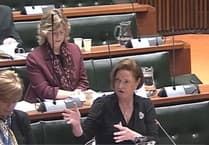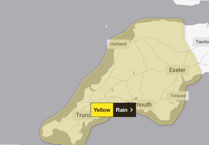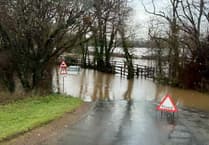DEVON’S road network faces an “inevitable decline” due to a lack of funding, an alarming new report reveals.
The county council’s new highways management plan details how current levels of investment means the worsening condition of some roads is “unavoidable,” with a strategy now in place for “managing decline.”
One opposition councillor has reacted by saying minor rural roads could end up being so bad that residents may want to consider getting a horse.
The management plan, presented to a cabinet meeting on Wednesday [12 April], explained how the annual settlement for highways maintenance – around £25 million last year – has halved in real terms compared to a decade ago.
“This also has the knock-on impact of forcing a change in priorities, with safety taking higher consideration and proactive works being stopped, contributing to a more rapid deterioration of roads,” it explained.
Capital funding from the Department for Transport is also now lower in real terms than it was in 2014/15, although there was a one-off increase in 2020/21, while an extra £9.4 million for potholes has increased the total for the new financial year.
But councillors are being warned that the funding pressures mean potholes are “likely to become more prevalent, leading to a rise in unplanned and disruptive maintenance.”
The report adds: “In the long term there will also be an impact on the selection of journey routes and the reliability of journey times.” Devon has more than 8,000 miles of road; the largest road network in the country.
Overall county council spending will increase by 10.5 per cent this financial year – £67 million – but most of it is set aside for adult and children’s services. Climate change, environment and transport has received just a 3.5 per cent boost, well below inflation.
Roads will now only be repaired after assessment against a set of “management strategies,” with “priority assets” receiving targeted investment. The council also wants to maintain the current condition of A and B roads. However, the lack of money means Devon’s minor roads will be allowed to “gradually deteriorate,” while unclassified roads will get “minimal maintenance,” apart from safety and routine maintenance.
Councillor Stuart Hughes (Conservative, Sidmouth), cabinet member for highways, said: “Like all authorities, Devon is facing significant financial pressures which have been compounded further by the recent high inflation.”
He added the service had “continued to focus on improving efficiencies alongside innovation, recognising that in the absence of adequate funding, the service must prioritise and best manage a decline.”
But debating the item, Liberal Democrat councillor Alistair Dewhirst (Ipplepen & The Kerswells) suggested minor roads could end up being so bad that residents may have to consider equine forms of transport.
“If you’re a resident in a minor rural road, effectively with the decline that is implicit in this report, you’re just going to be landlocked. You’re just going to have to walk everywhere or maybe get a horse.”
Cllr Dewhirst also claimed it would cost £180 million to improve Devon’s roads. This figure was acknowledged by county council director of transport Meg Booth, who said it would allow all roads to be at least ‘amber’ on a traffic-light scale of concern.
Labour councillor Carol Whitton (St David’s and Haven Banks) said: “Devon is certainly not alone in facing this problem of a declining asset and managing that decline, but of course Devon is particularly challenged by the sheer volume of mileage that exists within this county.
“And what is happening on unclassified roads will be of particular concern to our rural members. Less so in Exeter.”
Meanwhile, Independent leader Frank Biederman (Fremington Rural) called the report a “pretty grim read” and said it comes after “decades and decades of under-investment.”
Members of the cabinet agreed the management plan and also approved the council’s £66 million capital funded highway maintenance programme for 2023/24.



.png?width=209&height=140&crop=209:145,smart&quality=75)

Comments
This article has no comments yet. Be the first to leave a comment.